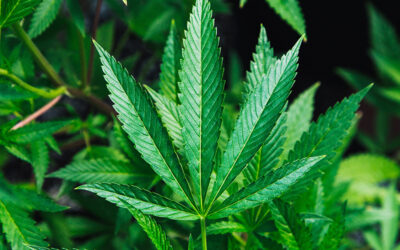Cumulative marijuana use throughout the teenage years does not adversely affect measured intelligence quotient (IQ), according to the findings in a recent study¹ published in the Proceedings of the National Academy of Sciences.
A researching team, headed by Nicholas J. Jackson of the University of Southern California (USC), used a longitudinal study to assess the potential effects of marijuana use on the IQ in adolescent, identical twins. The 3,066 teen subjects first had their intelligence measured from the ages of nine to 12, before marijuana use, and then again between the ages of 17 to 20. The researchers tracked the changes in subjects’ IQ test scores to determine the difference in trajectories in cannabis using twins compared to their non using counterparts.
According to the researchers, by analyzing the effects of cannabis use on twins, they were able to adjust for potential interfering variables like family background characteristics and genetic propensities. Since twins are typically raised in the same household and share most or all of the same DNA makeup, they can be more accurately compared.
What Jackson and the team found was that there was no dose-response relationship between cannabis use and IQ decline. Not only that, they reported no significant differences in IQ performance among cannabis using subjects when compared to their non using twins. This correlation even applied to those who smoked more than 30 times or used marijuana daily for over six months.
“Evidence from these two samples suggest the observed declines in measured IQ may not be a direct result of marijuana exposure,” the researchers explain, “but rather attributable to familial factors that underlie both marijuana initiation and low intellectual attainment.”
These findings arrive hot on the heels of a similar study² published in the January 2016 issue of Journal of Psychopharmacology, in which a group of UK researchers discovered that cumulative cannabis use at the age of 15 did not have an effect on the IQ or educational performance of 16 year olds.
“Modest cannabis use in teenagers may have less cognitive impact than epidemiological surveys of older cohorts have previously suggested,” the UK researchers conclude.
The Significance of the Findings
As medical and recreational cannabis legislation changes throughout the United States, these research endeavors may help ease the fears of those hesitant to support impending legislative changes because they think an increase in teen marijuana use might cause long term cognitive defects.
The cannabis legalization movement has fueled an effort to better understand cannabis’ effects, and the medical research community continues to make groundbreaking discoveries. Keep up with the latest in cannabis related studies and legislative changes by visiting our research, news, and political pages on the MJNA blog.
References:
- Jackson, N.J., Isen, J.D., Khoddam, R., Irons, D., Tuvblad, C., Iacono, W.g., McGue, M., Raine, A., and Baker, L.A. (2016, January 19). Impact of adolescent marijuana use on intelligence: Results from two longitudinal twin studies. Proceedings of the National Academy of Sciences of the United States of America, doi: 10.1073/pnas.1516648113. (http://www.pnas.org/content/early/2016/01/13/1516648113.abstract)¹
- Mokrysz, C., Randy, R., Gage, S.H., Munafo, M.R., Roiser, J.P., and Curran, H.V. (2016, January 6). Are IQ and educational outcomes in teenagers related to their cannabis use? A prospective cohort study. Journal of Psychopharmacology, doi: 10.1177/0269881115622241. (http://intl-jop.sagepub.com/content/early/2016/01/06/0269881115622241.full)²
Image Credit: Wikipedia






